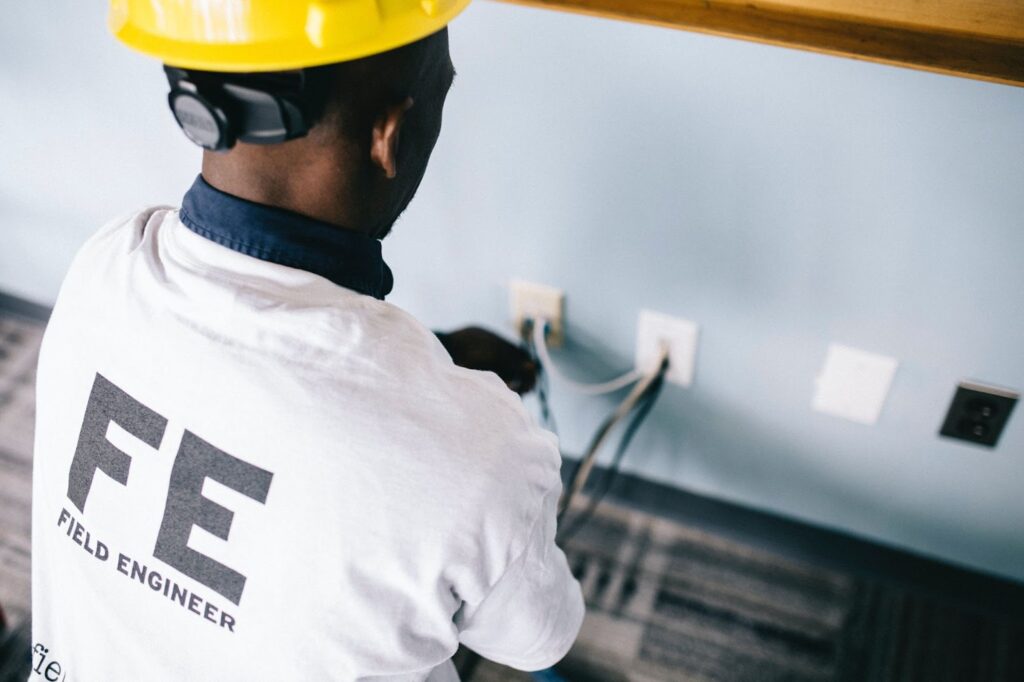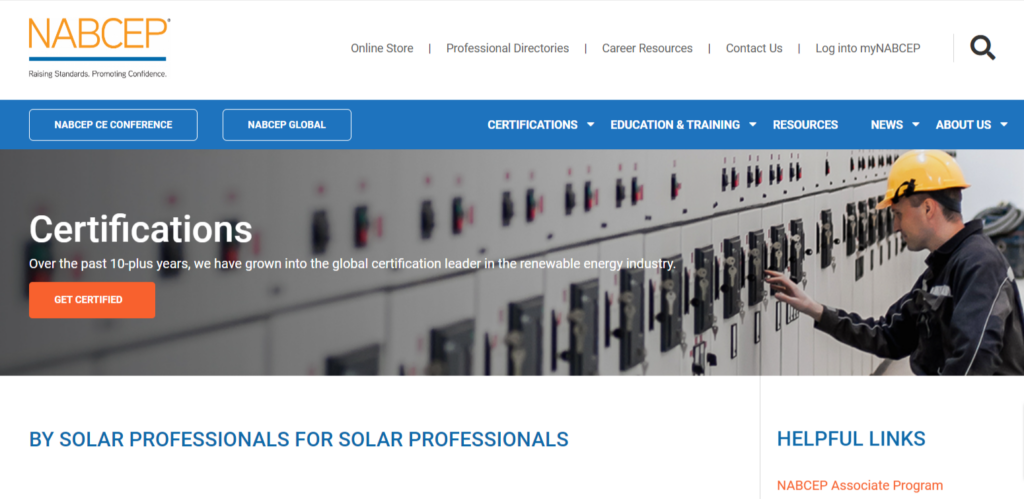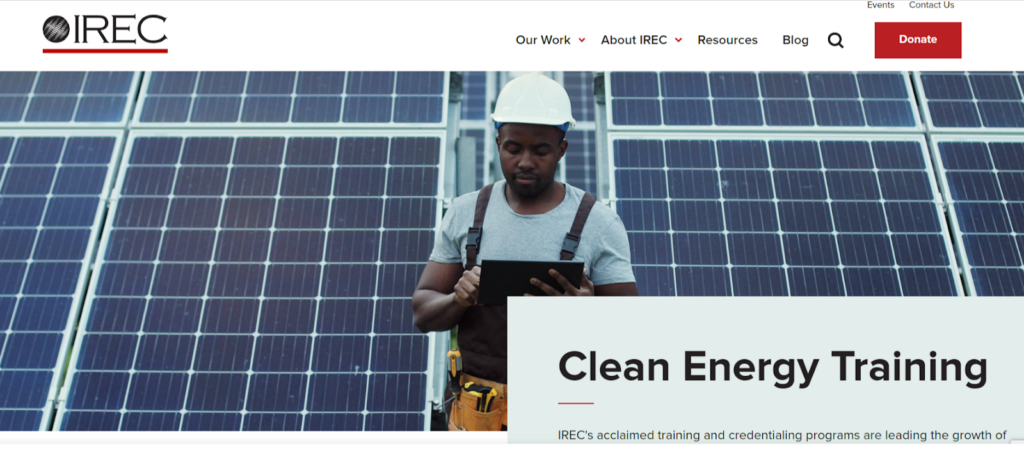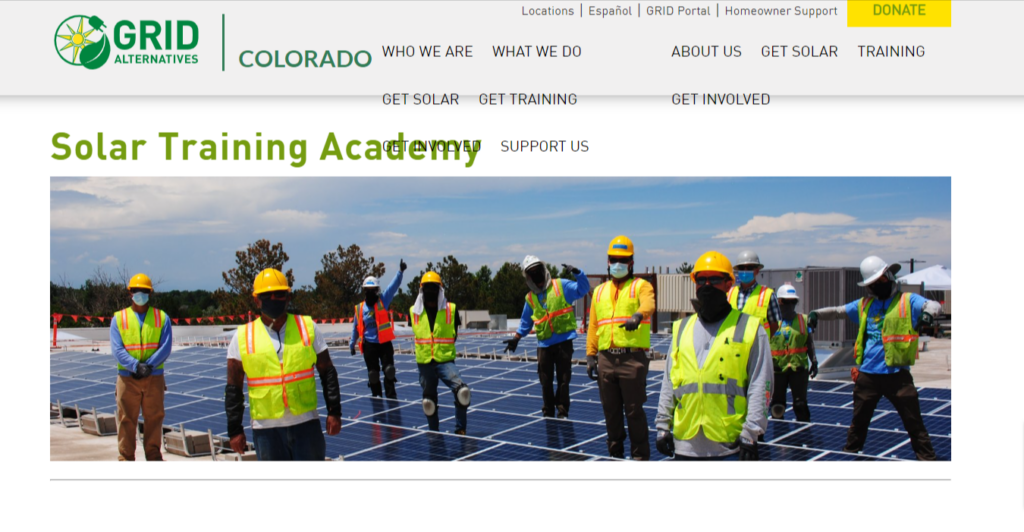
The Colorado solar energy market is booming, and it’s showing no signs of slowing down any time soon.
According to the National Solar Jobs Census 2022, there were over 263,000 jobs in solar (a growth of 3.5% since 2021) across all states, 7,626 of which are based in Colorado. In fact, the state ranks 7th for the number of solar jobs in the USA.
As the US moves toward a renewable energy future, it’s highly unlikely that this figure will fall. In fact, by the end of 2022, Colorado’s solar job market had increased by 2.7%, while it’s projected to grow another 6.4% in 2023 with a five-year growth projection of 12.3%.
If you’re looking for a career swap or are about to enter the job market, there has never been a better time to find employment in the solar industry.
In this article, we break down everything about the solar job market and take a look at what’s available in Colorado right now. Read on to discover what your dream job in sustainable energy might look like!
In a Nutshell
- Colorado ranks 7th in the USA for solar jobs
- Two-thirds of available solar jobs are in installation and project development
- In 2022, Colorado employed 5,275 solar installers and project managers
- Many solar jobs don’t require a bachelor’s degree
- Many solar jobs require a high school diploma and relevant experience
- Experience in solar can be gained by taking training and certification courses or an apprenticeship
- Denver County offers the most solar job opportunities in Colorado
- There are a good range of different solar jobs available throughout Colorado
- The average solar installer job in Colorado commands a salary of about $79,800
What Types of Solar Jobs Are Out There?

According to the solar census referenced above, here is how the solar job market is broken down by sector:
| Employment sector | Number of jobs |
| Installation and project development | 171,558 |
| Solar hardware manufacturing | 33,473 |
| Wholesale trade and distribution | 30,618 |
| Operations and maintenance | 16,585 |
| Other solar jobs | 11,648 |
If we look specifically at Colorado, the state’s solar job sector breaks down as follows:
| Employment sector | Number of jobs |
| Installation and project development | 5,275 |
| Solar hardware manufacturing | 611 |
| Wholesale trade and distribution | 621 |
| Operations and maintenance | 479 |
| Other solar jobs | 640 |
Let’s break these broad employment areas down a bit and look at the most common solar job types:
- Solar installers: These jobs involve the assembly and installation of solar systems. For this, technical and electrical knowledge is necessary, though formal qualifications aren’t necessarily required.
- Electricians: These individuals work on the electrical components and installation of a PV system. Experience and the necessary qualifications are required for this role.
- Technicians: Technicians are qualified or highly experienced individuals who ensure the ongoing running and maintenance of solar installations and generally troubleshoot and advise installers on what needs to be fixed.
- Solar Designers: These guys use special software, satellite imagery, and other resources to create detailed proposals for each client. They are highly qualified with at least a degree in science and engineering.
- Project Managers: A solar installation involves many moving parts and adherence to a specific timeline. The Project Manager will oversee the entire job and make sure everything stays on track.
- Administrators: Permits, contracts, logistics, and paperwork – there are a lot of these to deal with in solar energy. Therefore, administrators are required to process and manage it all.
- Financial Experts: Bookkeepers, accountants, and financial analysts are all required for a solar energy company to operate within its means and manage its finances accurately.
- Lawyers: Legislature and government policies change frequently, and solar energy is still a relatively new field. Therefore, lawyers are required to navigate the legal landscape, particularly for large-scale solar projects.
- Marketing and Sales Experts: As the solar industry booms, so does the competition. Effective marketing campaigns and experienced sales professionals are vital for getting clients through the door.
- Manufacturing Technicians and Supervisors: Those who work in the construction of solar panels and other components are varied and many, with differing levels of skill involved.
What Qualifications Do You Need to Work in Solar?

The qualifications required for a solar energy job very much depend on the type of role you are going for. For example, if you want to work as a lawyer, electrician, engineer, or marketing professional, then you will be expected to have the relevant degree, qualifications, and experience to back it up.
The good news is that not every job requires a degree or a qualification to get started. One common way to break into the solar industry is to take up an apprentice program. These are typically offered by larger solar companies and serve to teach you what you need to know to get started in solar installation.
Once you have completed your apprenticeship, you can generally find full-time employment within the same company that offered it.
Another common way to start working in solar is to find a solar installer who is willing to let you learn on the job. You’d typically start off by performing menial tasks and observing the more experienced workers until you gain enough knowledge and know-how to fully perform your role.

The lack of qualified employees is a growing problem in the solar industry. The 2022 census found that 44% of solar employers had trouble sourcing appropriately qualified staff (the highest percentage recorded since the census began).
That said, less than half of all new hire roles required a bachelor’s degree and less than a third of those roles needed an associate’s degree. So, if you missed out on higher education, it won’t necessarily prevent you from taking up a job in solar energy.
Experience is what counts, and with the Inflation Reduction Act coming into force, it is expected that utility-scale solar companies will start ramping up the number of apprenticeships they take on each year.
Solar-Related Certifications and Training That Are Worth Getting
If you have no experience in solar energy, where do you start? A good place is to undergo some recognized certifications and training under your belt.
Not only will doing this give you the experience required to get your foot in the door, but it will also ensure you stand out as a credible and knowledgeable individual who is willing to go the extra mile.
So, what is on offer, exactly?
Solar Energy International (SEI)

The SEI is a great starting point for anyone with little to no experience in the solar energy industry. It offers a huge range of courses, from online training to classroom learning, hands-on lab training, and more.
It also offers professional certifications and NABCEP training (see below).
If you want to dip your toe into solar learning without risking anything financially, there’s a great free course available from SEI.
North American Board of Certified Energy Professionals (NABCEP)

NABCEP is a rigorous and tough certification program that’s generally more suitable for those who already have a little experience under their belt.
NABCEP credentials prove that you know your stuff and are a standup professional. It’s definitely worth getting because this qualification increases your salary potential by as much as $10,000.
Courses and exams range from purely online to in-person and can be as short as a couple of hours. There are tonnes of different courses available across the whole of the USA.
Interstate Renewable Energy Council (IREC)

IREC also offers a number of accredited training programs in clean energy. Its website is another great resource for learning about the solar employment landscape and it features the Apprenticeships in Clean Energy Network (ACE).
ACE is a registered apprenticeship program that has been validated to meet the standards as set out by the U.S. Department of Labor and/or a State Apprenticeship Agency.
Essentially, the organization will help clean energy businesses develop a high-quality apprenticeship program that provides proper value and fair conditions to those who participate in it.
Therefore, if you decide to undertake an apprenticeship, look for one that is part of the ACE network, and you know you will be getting the real deal.
GRID Alternatives: Solar Training Academy

This Denver-based organization provides a two-week training program consisting of a combination of classroom and hands-on training for people who are a resident of the Denver metro area.
It’s designed as a stepping stone into solar employment as it helps you develop professional skills and teaches you about renewable energy technologies. Additionally, you’ll gain your OSHA 10 and CPR/First Aid certifications.
Best of all, this program provides a stipend of $1,280 for the two-week training period.
Is Colorado Good for Solar Jobs?
A state’s suitability for solar jobs is entirely dependent on its suitability for solar energy, and as luck would have it, Colorado is one of the best states for solar.
With over 300 days of sunshine per year and a government that is very proactive in pushing the adoption of solar energy, we can only expect the solar industry to keep growing and the number of available jobs expanding.
Right now, about 400 solar-related companies are operating in Colorado – over 40 solar manufacturers, 289 solar developers and installers, and 170 other solar-related companies.
Which Areas of Colorado Have the Highest Number of Solar Jobs?

According to Solar Energy International, the following counties have the most available jobs:
| County | Percentage of available jobs |
| Denver County | 39% |
| Boulder County | 22% |
| Douglas County | 11% |
| Jefferson County | 9% |
| Broomfield County | 8% |
| Arapahoe County | 4% |
| Adams County | 3% |
| Delta County | 2% |
| Larimer County | 1% |
| El Paso County | 1% |
Unsurprisingly, Denver – Colorado’s largest and most populous city – holds the most available solar jobs, with Boulder coming up second.
We thought that El Paso may have had a higher percentage since this is where a lot of utility-scale solar farms are situated, however, these are fairly autonomous and don’t necessarily require a lot of manpower to maintain.
Examples of Solar Jobs in Colorado

To give you a taste of what’s on offer in Colorado, here’s a sample of the available jobs advertised on Indeed at the time of writing this article. As you can see, there is lots of choice and the jobs are varied.
Note that only two of the jobs absolutely required a bachelor’s degree. Most wanted relevant experience and/or a high school diploma.
Although not listed in the table, virtually all the jobs require a valid driver’s license.
| Title | Salary range | Employer | Qualifications |
| Director, Renewable Development | $171,000 – $193,000/pa | Invenergy | Bachelor’s degree 8+ years of relevant experience |
| Solar Technician | $23 – $26/ph | Sandbox Solar | High school diploma (or GED)NABCEP |
| Solar Development Manager | $90,000 – $105,000/pa | Renewable Energy Systems Limited | Bachelor’s degree or relevant experience |
| Residential Wireman | $31 – $42/ph | Titan Solar Power Co | Tesla, LG, Generac, and SolarEdge battery certified or licensed OSHA 10 & 30 highly preferred Relevant experience |
| Solar Installer | $19 – $24/ph | Sandbox Solar | High School diploma preferred Relevant experience |
| Residential Project Manager | $65,000 – $80,000/pa | Nelnet | High School diploma Relevant experience |
| Project Manager: Land Acquisition | Not disclosed | The AES Corporation | Bachelor’s In Energy Management/Landman, Business, Engineering, or GIS Relevant experience |
| Construction Scheduler | $65,000 – $76,000/pa | Renewable Energy Systems Limited | High School Diploma/GED, required Bachelor’s degree preferred Relevant experience preferred |
| Senior Development Manager | Not disclosed | Sonnedix | Relevant experience and knowledge |
How to Get Started in the Solar Industry?

The first step toward getting a job in solar requires you to start learning about the industry. Take some courses (like the free one mentioned above), start reading up on industry news, and you could even go and talk to a few solar companies to understand more about what they do.
Also, attend any available conferences, webinars, and events that are solar-related. For example, the 2024 Solar Power and Energy Storage presented by the Colorado Solar and Storage Association is a huge event in Mountain West and brimming with industry experts and the latest solar news and innovations. It’s also a great opportunity to network and start getting a feel for who you want to work for.
Next, build your resume and portfolio to reflect how your experience and qualifications are relevant to solar energy. If you don’t yet have any experience, consider taking a course or getting a certification first.
This is also the point where you should consider whether or not an apprenticeship will be worth it, especially if you want to enter a more technical field.
If you’re ready to start searching for jobs, take a look at your local job listings for the solar industry. If you’ve done some networking already, call up your contacts and ask if they are taking on new hires.
Perform due diligence on the employers. Check out sites such as Glassdoor to understand if they’re going to be a good company to work for.
Then, get to applying!
When you land an interview, research the company and the job vacancy inside out, and don’t forget to arrive armed with a list of well-thought-out questions for the interviewer.
Good luck, and happy solar job hunting!
For information on potential solar job opportunities in San Luis Valley, or if you’re interested in having solar energy installed, get in touch with 8760 Solar. Text “READY” to 719 470-0254 or contact us via email: sales@8760solar.com.
Frequently Asked Questions
How Do I Get Into the Solar Panel Industry?
Many solar-related jobs don’t require a bachelor’s degree, however, relevant experience is required. To gain experience, consider taking a certification program such as NABSEP or undergoing training in your desired field.
Additionally, many larger solar companies will offer apprenticeships, which will allow you to get your foot in the door.
How Much Do Solar Installers Make in Colorado?
According to Salary.com, the average solar installer in Colorado will earn just over $79,800 per year.
Is It Hard to Get Into Solar Sales?
It is not necessarily hard to get into solar sales, but to get a job in this field you must know your stuff inside out.
Sales jobs require skills that convince people to buy. Therefore, consider taking training or courses to learn sales skills as well as researching and learning about solar energy in-depth.
What Solar Job Pays the Most?
According to solarpower.guide, lawyers with solar expertise ($114,970), solar project developers ($105,060), and solar software engineers ($99,195) earn the most.
Are Solar Jobs Worth It?
Solar is a rapidly growing industry and as the USA moves toward 100% clean energy, it’s not going to slow down anytime soon. Therefore, getting a job in solar is a great idea and will likely provide stable employment for years to come.
